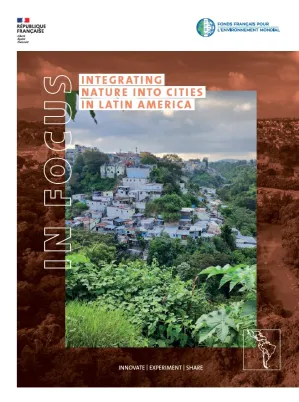Publications and media
Marine ecosystems: Oceanic plankton, Climate and Development
The collaboration between the FFEM and the Tara Ocean Foundation began in 2015 with the instruction of the Ocean Plankton, Climate and Development project: it was the beginning of a collective adventu...
Published on
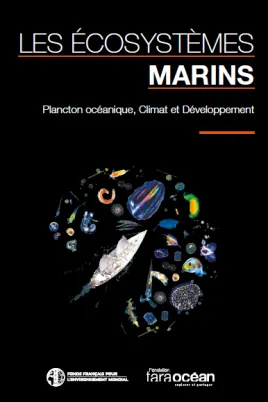
Evaluation overview The “Sustainable Small Islands Initiative” SMILO project
The “Sustainable Small Islands initiative” has the goal of responding to the need for support and dialogue between the leaders of these territories in order to initiate, promote and enhance approaches...
Published on
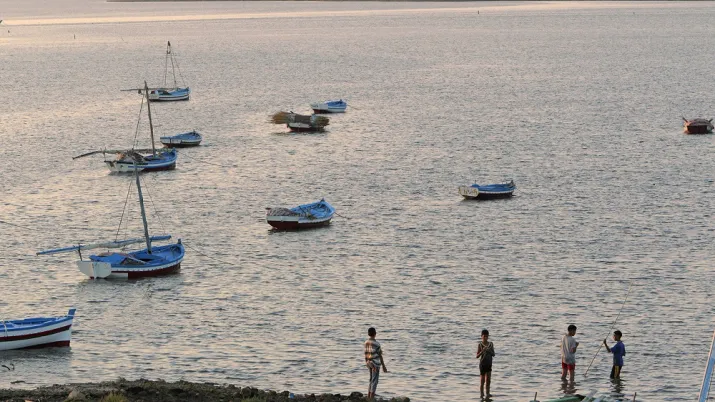
Evaluation overview Agroforestery Technical Assistance Facility (ATAF) project
The Agroforestry Technical Assistance Facility (ATAF), launched in 2016 to complement the Moringa Fund, aimed toto encourage the development of sustainable agriculture based on agroforestry, with the...
Published on
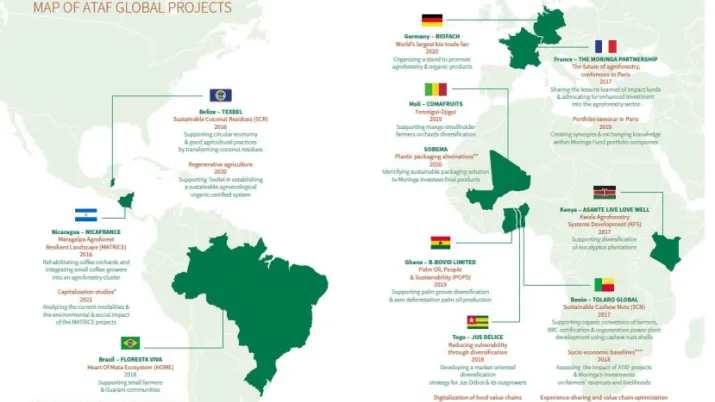
Note for project iniators using "carbon finance"
Carbon finance is essentially a way of assigning a value to the climate impact of actions on the ground. Carbon finance mechanisms were introduced through the Kyoto Protocol. They allow developed coun...
Published on
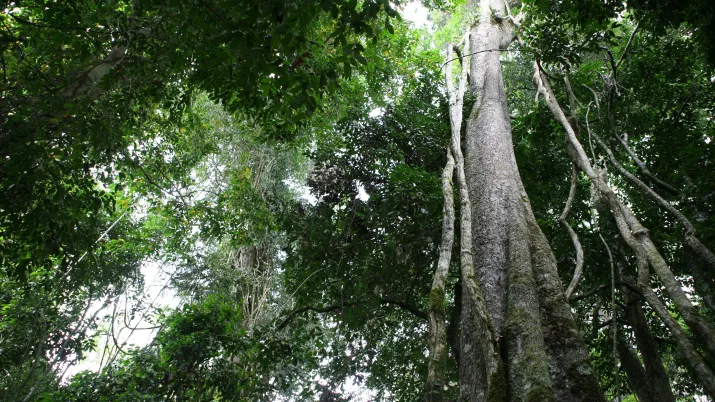
Evaluation overview of the FISP Use of solar-powered cooling to help Senegalese fisheries better adapt to clim...
The artisanal fishing industry plays a very important role in Senegal. The green energy operator, Valorem, came up with the idea of developing and commissioning a demonstrator – CryoSolar – to meet th...
Published on
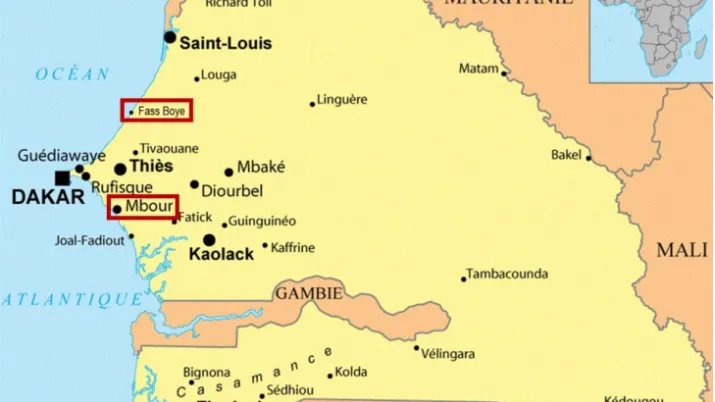
Evaluation of AFD and FFEM contributions to biodiversity conservation trust funds (2005-2019)
Among the eight CTFs supported by AFD and FFEM since 2005 and which are the subject of this study, three are regional, the first covering three Central African countries (FTNS), a second focusing on M...
Published on
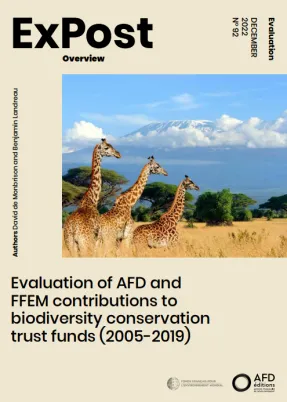
Press Release - Vital reserves in Amazonia
The French Facility for Global Environment, Conservation International to support world’s Vital Reserves. €2.5 million investment aims to address both climate and biodiversity crises in Amazonia
Published on
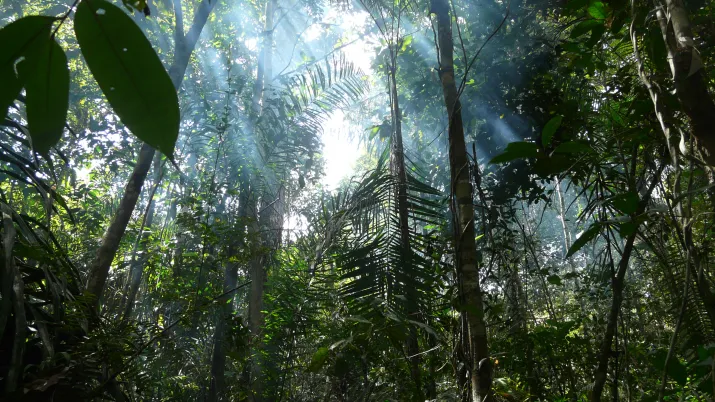
Evaluation summary of the COGITO project
In a context of increasing pressures on natural resources in the Mediterranean, the COGITO project aimed in particular to demonstrate that through consolidating processes and actions on pilot sites in...
Published on
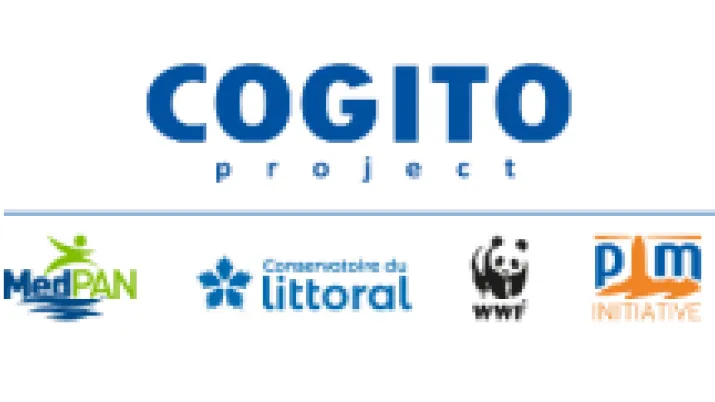
Evaluation overview Project Forest and Landscape Restoration and Sustainable Land Management in the Sahel (RFP...
Regarding the challenges of desertification in the Sahel, with repercussions on food security and livelihoods, the Forest and Landscape Restoration (FLR) and Sustainable Land Management (SLM) Project...
Published on
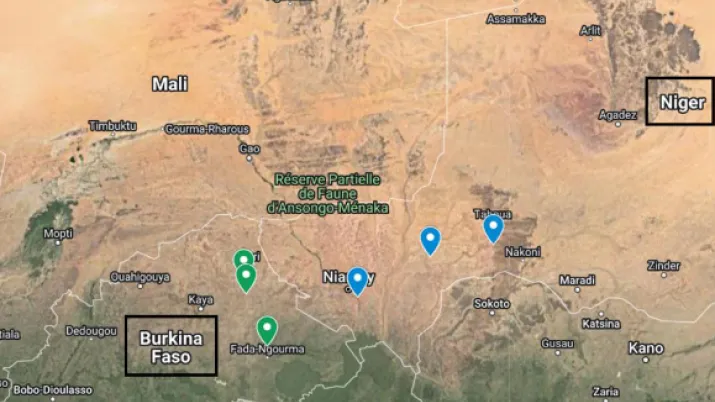
Evaluation overview WEEECAM Project E-waste Sustainable Management in Cameroon
As in every country in the world, the amount of generated WEEE is increasing significantly in Cameroon. In 2019, the production of WEEE in the cities of Douala and Yaoundé was estimated at 23,000 T/ye...
Published on
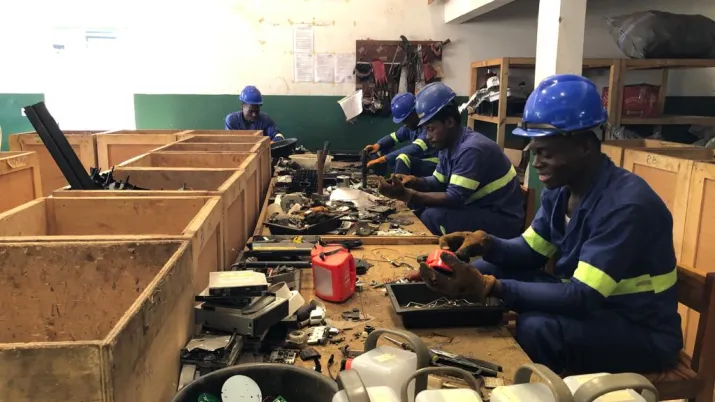
Evaluation summary Conservation Finance Alliance (CFA) Horizon 2026: Amplifying sustainable funding for conser...
Founded in 2002, the Conservation Finance Alliance is a unique collaborative and global network of conservation finance practitioners and experts whose mission is to “promote awareness, expertise, and...
Published on
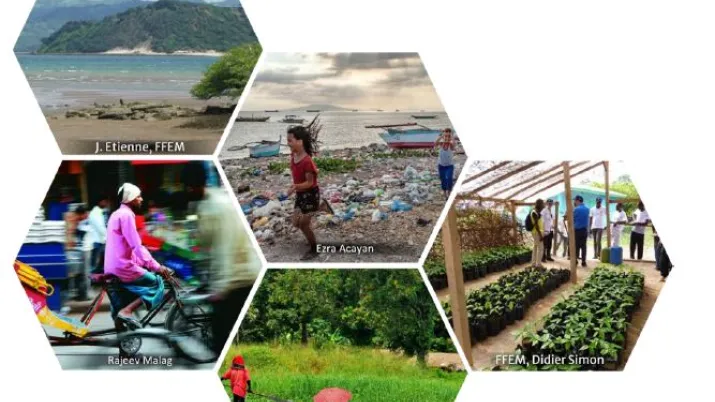
Activity report for 2022-2023
To deliver its mission at the crossroads where development goals meet those for environmental protection, the FFEM has adopted 4 core principles that guide its support for projects that adopt innovati...
Published on
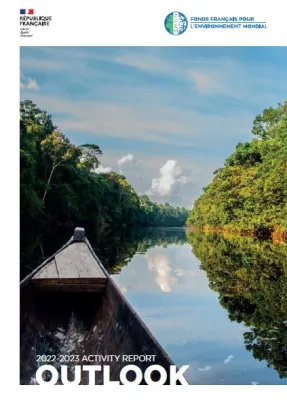
Aquatic ecosystems resilience brochure
High seas, coastlines, wetlands, and freshwater hydrosystems: their role is crucial for climate regulation. By causing ocean acidification or sea level rise, anthropogenic pressures threaten these nat...
Published on
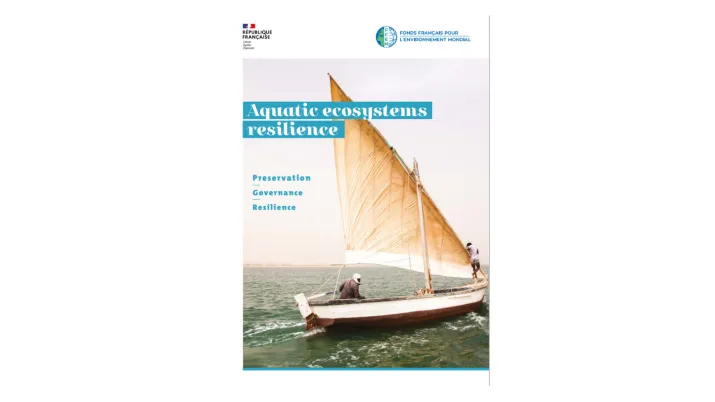
Biodiversity conservation and enhancement
Human activities have significantly altered both terrestrial (75%) and marine (66%) surfaces, endangering nearly one million animal and plant species. To reconcile conservation and development, FFEM c...
Published on
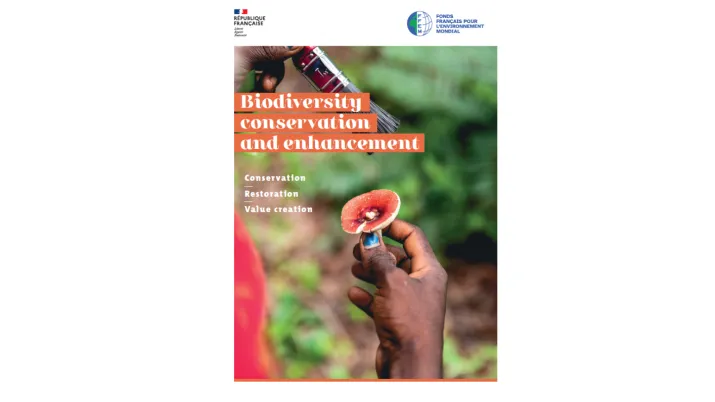
Adaptation and low-carbon transition in cities and territories
Greenhouse gas emissions continue to rise, especially in cities where more than 55% of the world’s population currently resides, and where an estimated 68% will reside by 2050. These urban areas are h...
Published on
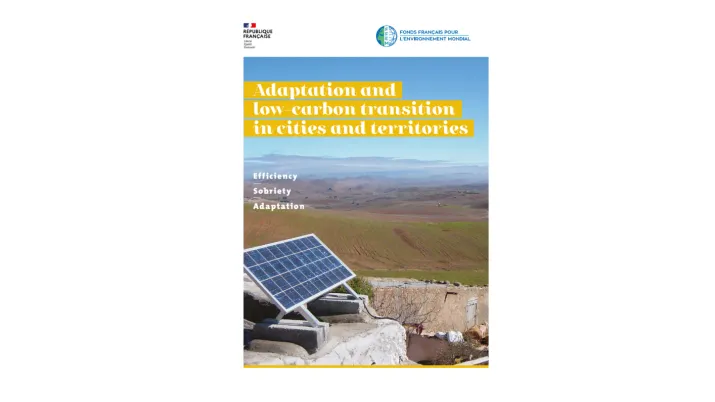
Sustainable management of agricultural and forests landscapes
As the primary reservoir of terrestrial biodiversity, forests, along with lands, serve as a powerful lever for climate regulation. Agricultural-related deforestation accounts for nearly a quarter of a...
Published on
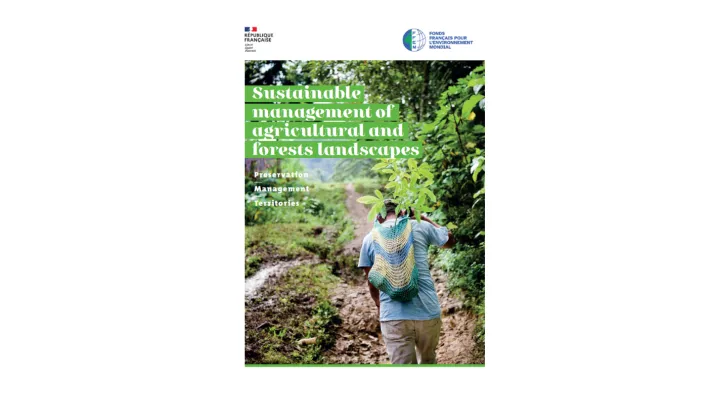
Circular solutions and fight against pollution
FFEM supports projects that tackle pollution and implement circular solutions. It accompanies integrated approaches that consider the entire product life cycle. It also supports the strengthening of g...
Published on
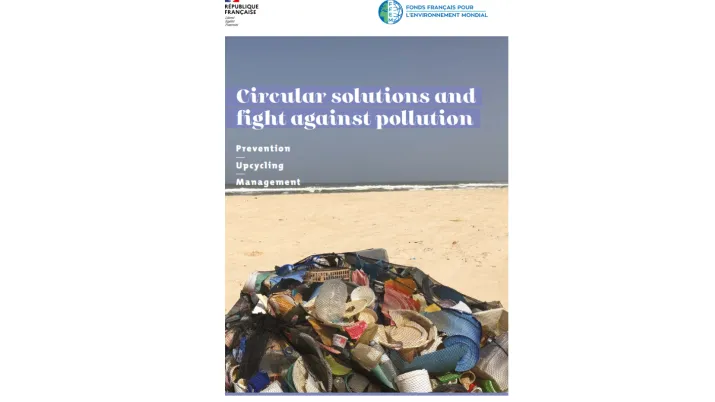
Video : In FOCUS : Integrating Nature into Cities in Latin America
Three quarters of the population in Latin America live in cities, which have been developed with no regard for the rich biodiversity which flourishes alongside them in the tropical climate. However, t...
Published on

The 6 recommandations for Integrating, Preserving and Restoring Nature in Cities
Three quarters of the population in Latin America live in cities, which have been developed with no regard for the rich biodiversity which flourishes alongside them in the tropical climate. However, t...
Published on
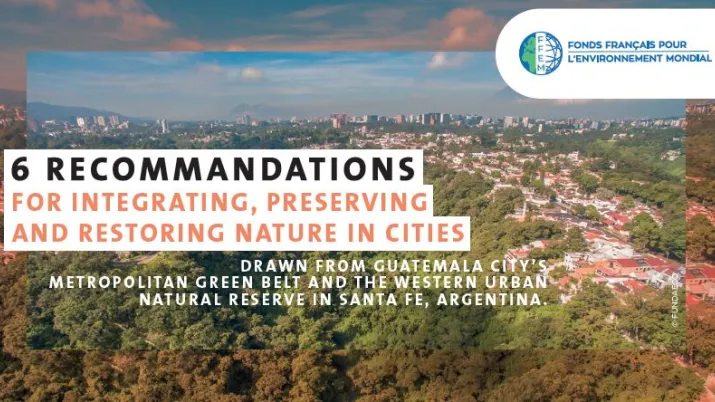
IN FOCUS - Towards more sustainable management of Central African production forests
For nearly thirty years, the FFEM has been supporting the conservation and enhancement of biodiversity and the sustainable management of agricultural and forest territories; these two areas of interve...
Published on
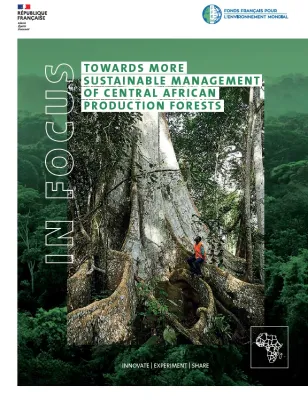
IN FOCUS - Integrating nature into cities in Latin America
The sustainable city and more specifically Nature in the city are at the heart of the strategy of the FFEM for 10 years by encompassing both biodiversity conservation issues, adaptation and low-carbon...
Published on
